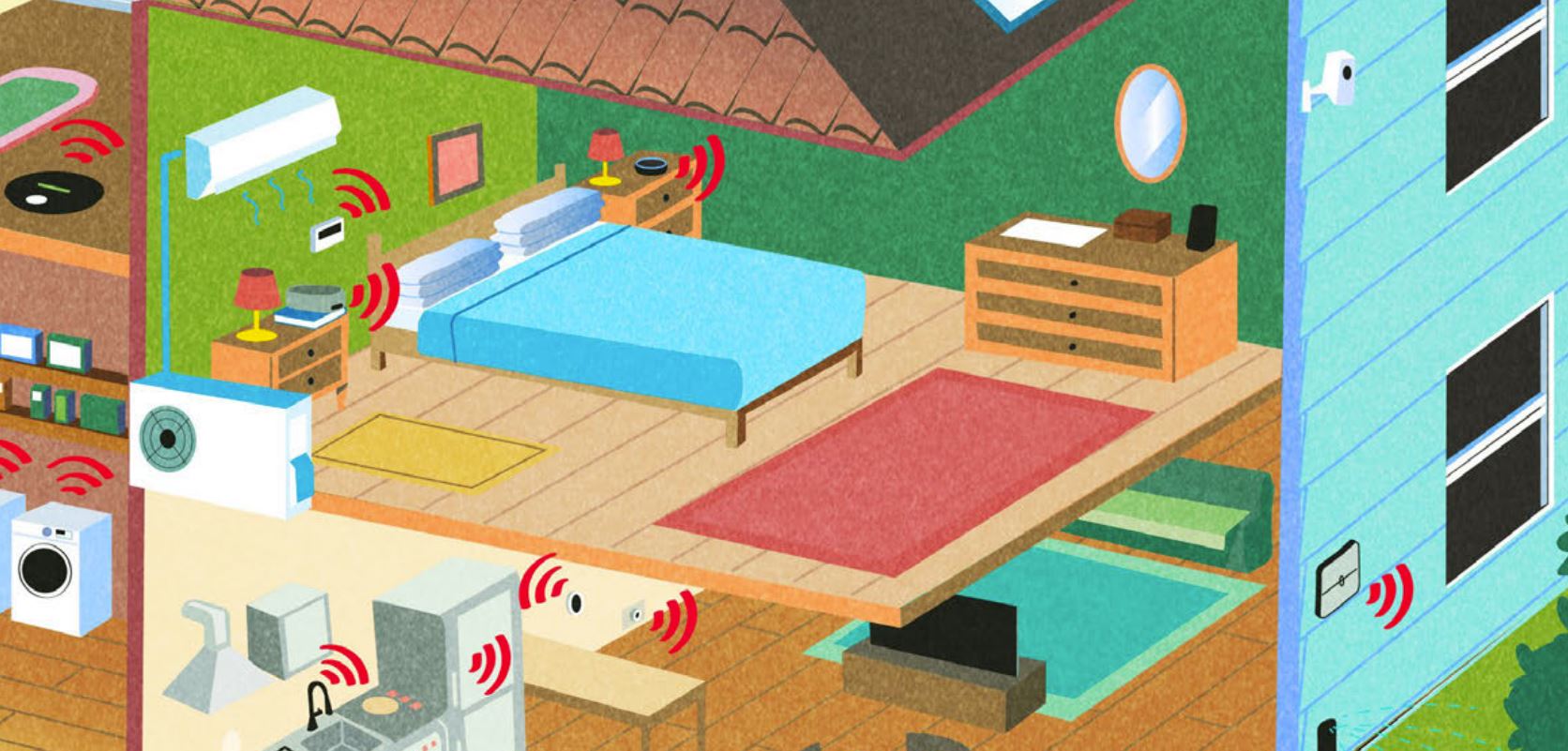5 Ways to Borrow and Read More Free E-Books
Lending and borrowing digital reads can be tricky, but the money you save makes parsing the online landscape worthwhile.

Profit and prosper with the best of Kiplinger's advice on investing, taxes, retirement, personal finance and much more. Delivered daily. Enter your email in the box and click Sign Me Up.
You are now subscribed
Your newsletter sign-up was successful
Want to add more newsletters?

Delivered daily
Kiplinger Today
Profit and prosper with the best of Kiplinger's advice on investing, taxes, retirement, personal finance and much more delivered daily. Smart money moves start here.

Sent five days a week
Kiplinger A Step Ahead
Get practical help to make better financial decisions in your everyday life, from spending to savings on top deals.

Delivered daily
Kiplinger Closing Bell
Get today's biggest financial and investing headlines delivered to your inbox every day the U.S. stock market is open.

Sent twice a week
Kiplinger Adviser Intel
Financial pros across the country share best practices and fresh tactics to preserve and grow your wealth.

Delivered weekly
Kiplinger Tax Tips
Trim your federal and state tax bills with practical tax-planning and tax-cutting strategies.

Sent twice a week
Kiplinger Retirement Tips
Your twice-a-week guide to planning and enjoying a financially secure and richly rewarding retirement

Sent bimonthly.
Kiplinger Adviser Angle
Insights for advisers, wealth managers and other financial professionals.

Sent twice a week
Kiplinger Investing Weekly
Your twice-a-week roundup of promising stocks, funds, companies and industries you should consider, ones you should avoid, and why.

Sent weekly for six weeks
Kiplinger Invest for Retirement
Your step-by-step six-part series on how to invest for retirement, from devising a successful strategy to exactly which investments to choose.
E-reading is most popular among young booklovers. According to the Pew Research Center, 34% of 18- to 29-year-old readers consumed a digital book in 2011, matching the percentage of 30- to 49-year olds and beating the older age groups. Unfortunately, the go-to money-saver for bibliophiles everywhere — borrowing instead of buying your books — proves tricky in the Internet age. E-books are tougher to lend and borrow than their musty paper counterparts, and e-sharing comes with many strings attached. Still, you don't have to buy every book on your digital reading list. Here are five ways to make the most of what's available:
1. Plan your shares carefully.
Users of Amazon's Kindle reader or Barnes and Noble's Nook reader can share only select books. (Publishers choose which books can be shared; you can find whether a book is lendable on its product page of each site.) And lenders need to pick their borrowers judiciously. With both platforms, a loaned book can never be lent again.
Your designated borrowers should be prepared to receive and read your loaned e-books. They must have the appropriate device — either the Kindle or Nook, or their free apps for a smart phone or tablet. And Amazon and Barnes and Noble allow you just seven days to accept a loan and 14 days to finish reading. During that time, the book is unreadable on the lender's device.
From just $107.88 $24.99 for Kiplinger Personal Finance
Become a smarter, better informed investor. Subscribe from just $107.88 $24.99, plus get up to 4 Special Issues

Sign up for Kiplinger’s Free Newsletters
Profit and prosper with the best of expert advice on investing, taxes, retirement, personal finance and more - straight to your e-mail.
Profit and prosper with the best of expert advice - straight to your e-mail.
Amazon Prime subscribers can also borrow one book per month for free from a selection of 400,000 reads. Unfortunately, Mac heads can't share books bought in the iBooks store.
2. Connect with book-swapping strangers online.
Readers can join free lending networks to expand their digital book options exponentially. You'll still have to abide by Kindle's and Nook's strict sharing policies, but the sheer number of people lending out books through these sites gives you a better shot of snagging a free read than simply perusing the digital shelves of your close friends. For example, eBookFling has nearly 110,000 users and is free if you lend to strangers on the network as much as you borrow. Each time you lend a book, you earn one credit. And each time you borrow a book, it'll cost you one credit — or $2.99, if you have no credits to cash in.
Other lending networks, including Lendle, The Book Elf and BookLending, are completely free to use.
3. Search for open formats.
Some publishers are making it easier to lend good reads by selling books in open formats — such as EPUB, the world's most popular open format — which don't restrict your ability to share. The files work across most devices, and you can privately distribute books that you buy and own however you'd like.
The number of publishers using this format is limited. Muggles can buy the entire Harry Potter series as open EPUB files at Pottermore.com. Publishers such as Tor, Forge and Baene EBooks, which focus on the science fiction, fantasy and mystery genres, also offer EPUB files.
4. Check out your public library.
Don't forget that public libraries lend e-books, too. For example, 16,000 libraries across the country offer e-books using the popular service OverDrive. But some publishers don't allow libraries to lend their titles, so your options will be limited, especially for new releases. Head to your library's Web site and look for its e-book page to see all the titles that are available.
At libraries, bookworms can place e-books on hold as well as borrow multiple e-books. Policies vary from city to city. Washington, D.C., for example, lets you place a hold on up to 25 e-books at once, and you can borrow up to ten e-books at a time. In Chicago, you can place holds on three titles and borrow up to six e-books at a time. Lending periods vary from one week to three weeks, depending on your library and title of choice. Don't forget that you'll need a library card, too.
5. Take advantage of freebies.
Public libraries aren't the only place to get freebies. You'll find vast libraries of older titles no longer under copyright via Project Gutenburg and Google Play, for example. Most conventional online book sellers, such as Amazon and Barnes and Noble, also have a wide array of free e-books.
Some of the most popular free books in Google Play, for example, include H.G. Wells's The Time Machine, Kate Chopin's The Awakening and Charles Darwin's The Origin of Species. And the bard himself accommodates "where sadly the poor wretch comes reading," as the Queen says upon seeing Hamlet. So Shakespeare lovers can rejoice. Bookish wit and all.
Profit and prosper with the best of Kiplinger's advice on investing, taxes, retirement, personal finance and much more. Delivered daily. Enter your email in the box and click Sign Me Up.

John Miley is a Senior Associate Editor at The Kiplinger Letter. He mainly covers AI, technology, telecom and education, but will jump on other business topics as needed. In his role, he provides timely forecasts about emerging technologies, business trends and government regulations. He also edits stories for the weekly publication and has written and edited email newsletters.
He holds a BA from Bates College and a master’s degree in magazine journalism from Northwestern University, where he specialized in business reporting. An avid runner and a former decathlete, he has written about fitness and competed in triathlons.
-
 5 Vince Lombardi Quotes Retirees Should Live By
5 Vince Lombardi Quotes Retirees Should Live ByThe iconic football coach's philosophy can help retirees win at the game of life.
-
 The $200,000 Olympic 'Pension' is a Retirement Game-Changer for Team USA
The $200,000 Olympic 'Pension' is a Retirement Game-Changer for Team USAThe donation by financier Ross Stevens is meant to be a "retirement program" for Team USA Olympic and Paralympic athletes.
-
 10 Cheapest Places to Live in Colorado
10 Cheapest Places to Live in ColoradoProperty Tax Looking for a cozy cabin near the slopes? These Colorado counties combine reasonable house prices with the state's lowest property tax bills.
-
 When Tech is Too Much
When Tech is Too MuchOur Kiplinger Retirement Report editor, David Crook, sounds off on the everyday annoyances of technology.
-
 I Let AI Read Privacy Policies for Me. Here's What I Learned
I Let AI Read Privacy Policies for Me. Here's What I LearnedA reporter uses AI to review privacy policies, in an effort to better protect herself from fraud and scams.
-
 What Is AI? Artificial Intelligence 101
What Is AI? Artificial Intelligence 101Artificial intelligence has sparked huge excitement among investors and businesses, but what exactly does the term mean?
-
 Debit Cards vs Charge Cards
Debit Cards vs Charge Cardscredit & debt Whether sticking to a budget or reaping big rewards, understand whether debit cards vs charge cards are right for you.
-
 Four Smart Steps To Take Before Buying Your First Home
Four Smart Steps To Take Before Buying Your First Homehome Buying your first home can be daunting. Here are four things you need to do years before you start house-hunting to prepare financially for the biggest purchase of your life.
-
 The 15 Cheapest Places to Live: US Cities Edition
The 15 Cheapest Places to Live: US Cities Editionplaces to live Have a look at the cheapest places to live in America for city dwellers. Is one of the cheapest places to live in the U.S. right for you?
-
 Sharing His Path to Success
Sharing His Path to SuccessStarting Out: New Grads and Young Professionals This Native American studied tech in the Air Force and landed his dream job. Now he’s giving back.
-
 The 27 Best Smart Home Devices
The 27 Best Smart Home Devicesgadgets Innovations ranging from voice-activated faucets to robotic lawn mowers can easily boost your home’s IQ—and create more free time for you.